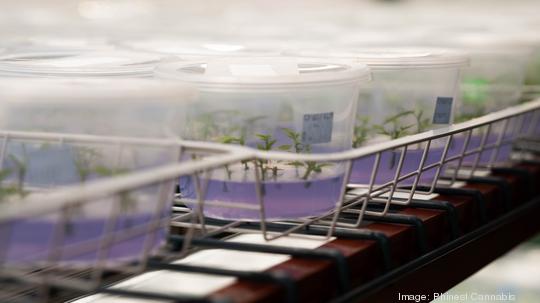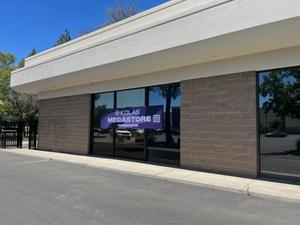
A local cannabis company moved its tissue culture operations to a new facility in Natomas earlier this year and is planning to convert its former space into a breeding facility.
Phinest Cannabis was founded in 2016 and specializes in developing cannabis plant clones using tissue culture micropropagation. The local company also offers wholesale distribution and operates cultivation facilities in Sacramento and Yolo County.
Matthew Wich, chief operating officer for Phinest Cannabis, described tissue culture micropropagation as a means to multiply cannabis plants in a sterile environment, with the resulting product being free of pathogens.
"I think as an industry we've seen in the last couple of years that there is always going to be pathogen issues that each crop is going to have to deal with," he said. "Micropropagation is the most effective means of controlling that issue."
Earlier this year, the company opened a new 40,000-square-foot cannabis tissue culture nursery in Natomas. Green Capital Investments LLC, the parent company of Phinest, developed the nursery at a cost of more than $12 million. The facility is capable of generating 18 million fully rooted tissue culture cannabis clones per year and is believed to be the largest such facility in North America, Wich said.
Phinest currently doesn't utilize all of the square footage the new facility provides, though it gives the company room for growth, Wich said, especially with the potential for federal legalization in the future.
Prior to opening the facility, Phinest operated its tissue culture operations out of an approximately 5,000-square-foot space in Natomas. Wich said the plan now is to convert the former space into the company's breeding facility.
"Think of the tissue culture micropropagation as the record-pressing plant and the breeding center as the facility where songs are recorded," he said. "We will be working with our team and collaborating with other leading breeders to develop what we think will be new exciting genetics for the market. It will also allow us to do more small-scale R&D for new genetics that we will be able to test out on the market and get feedback before we put it through the tissue culture process."
The process of breeding plants involves taking pollen from male plants and "painting" it onto the flowers of a female plant, Wich said. The female plant then produces seeds, each with a unique combination of genes that are derived from the parent plants. The breeding facility will then take those seeds and germinate them, allow them to grow out and produce cannabis flower. Once each plant is fully grown, the company can then select the plants, or strains, with the best characteristics to preserve and use for further propagation.
The dedicated breeding center is expected to be completed and ready for operations in the coming months, with its first breeding event expected to take place by the end of the year, Wich said.
Across its operations, Phinest Cannabis employs approximately 50 people, Wich said.









